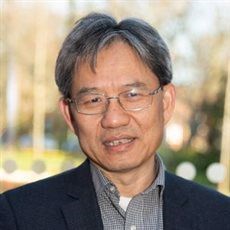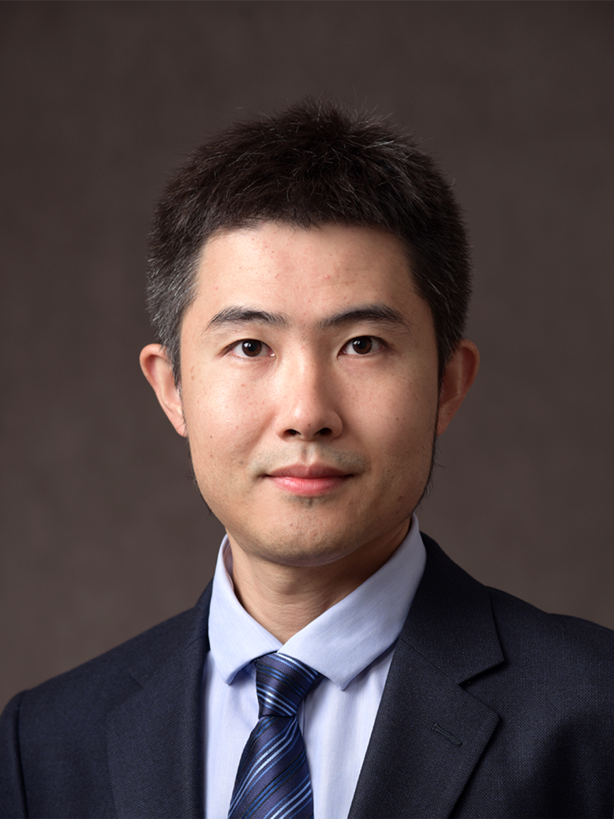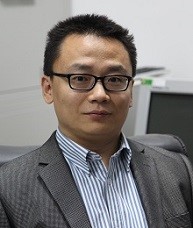Keynote Speakers

Professor Yulong Ding
Professor Yulong Ding is the founding Chamberlain Chair of Chemical Engineering and Director of University of Birmingham Centre for Energy Storage. He invented liquid air energy storage technology and led the initial stage of its developments and validation, which is commercialised by Highview Power. He developed composite phase change materials for thermal energy storage and associated large-scale manufacture technologies, leading to large scale commercial applications with a total installation of >300MW / >1.2GWh so far. His work on passively cooled container technology has been on large scale commercial demonstration for cold chain transportation applications.
He has published over 450 technical papers with ~350 in peer-reviewed journals (GS H Index of ~ 76) and filed 70+ patents. He currently serves on the Molten Salts Advisory Group of the UK Department for Business, Energy and Industrial Strategy; UK Royal Society Net Zero Panel; IChemE Publication Medal Assessment Panel; and European Technology, and Innovation Platform Working Group on Smart Networks for Energy Transition (ETIPSNET).
Professor Ding’s work was recognised by the election to Fellow of Royal Academy of Engineering (2020); the award of IChemE Clean Energy Medal (2021); the IChemE Global Awards in three categories of Energy, Research Project and Outstanding Achievement Awards in 2019; the Distinguished Energy Storage Individual Award (Beijing International Energy Storage and Expo, 2018); the Cryogenic Energy Storage Research Chair Award (Royal Academy of Engineering, 2014); the Beijing Municipal Science and Technology Progress Award (First Prize, Advanced Compressed Air Energy Storage System, 2014); and the Energy & Environment Award and Technology and Innovation Grand Prix Award (Liquid Air Energy Storage, ‘The Engineer’ Magazine, 2011).

Professor Tim Coombs
Over the last 20 years, Prof. Tim Coombs lead EPEC (Electrical Power and Energy Conversion) superconductivity group, which has built up an outstanding international reputation in several areas of superconductivity research, ranging from novel theoretical tools for the understanding of superconducting properties up to real breakthroughs in the design of cutting-edge technologies. The group is now one of the strongest groups in the world with an extensive portfolio of experimental techniques and mathematical analysis tools.
Prof. Tim Coombs has strong links with industry and have had collaborative projects sponsored by BMW, Rolls Royce, Areva, EDF Energy, VA Tech, Applied Superconductor, etc. As well as UK universities, he has strong cooperation with other European (Liege, Jena and Barcelona) and American (Los Alamos, Argonne, Boeing) groups.
Prof. Tim Coombs has more than 210 papers published in high impact scientific journals. In addition to his university-based experience, he spent a further ten years in industry, and have authored more than ten patents.

Professor Wang Tuo
Tuo Wang received his BS degree from Tianjin University and his PhD degree from the University of Texas at Austin, both in chemical engineering. After gaining another year of research experience as a postdoctoral associate, he joined Novellus Systems, Inc. (currently Lam Research Corp.) as a process development engineer for PECVD. He joined the faculty of the School of Chemical Engineering at Tianjin University in 2012. With vapor phase deposition of thin films as his main research interest, he has applied thin film materials in photoelectrochemical water splitting and CO2 reduction. He is the author of 105 papers such as Nature Energy, Nature Commun, AIChE J、JACS, Energy Environ Sci, and etc. He was granted with the NSFC Excellent Young Scholar Fund and won The State Natural Science Award (the Second Prize) and the Hou Te-Pang Chemical Engineering Youth Award, etc.

Professor David Rooney
Professor David Rooney is the Dean of Internationalisation and Reputation for the Faculty of Engineering and Physical Sciences in Queens University of Belfast. His research focuses on energy generation and materials, and he is the Director of the Sustainable Energy Research Group at Queen’s. David is also the director of the Bryden Centre, a €9.4 million cross-border, renewable energy research centre funded by the EU under the Interreg programme. At present, he works with oil and gas companies, regional industry, and government to advise on Zero Carbon technologies.

Dr Fadhli Wong
Fadhli Wong is currently the General Manager heading the Fluid Technology Solutions department in PETRONAS with an international research team of 30 scientists at various PETRONAS global sites. Richly experienced in automotive engineering, Fadhli has championed the PETRONAS Motorsports including F1 and MotoGP for the past 20 years that has contributed not only to 8th times World Championship for the PETRONAS Mercedes AMG team but has also translated race technologies into downstream consumer products. With his extensive experience in oil and gas upstream operational excellence, he is now championing energy transitions in PETRONAS. Aside the demanding commitment in a corporate setting he is also a champion of PETRONAS Beyond Office Program to support employees’ mental health and promotes diversity and inclusion in workplaces.

Professor Bo Wang
Professor Bo Wang is the Vice President in Beijing Institution of Technology (BIT). Professor Wang is the National Distinguished Young Investigator, Executive Dean of the Advanced Research Institute of Multidisciplinary Science and Member of the Academic Committee of BIT. Professor Wang is also the executive director of the International IZA Society MOF, and the director of the International Academy of Electrochemical Energy.
Professor Wang has published ~80 papers on Nature, Science, JACS, Angew. Chem. Int. Ed., PNAS, Chem. Sci, J. Mater. Chem. A, Chem. Commun., and Sci. Rep. with a total citation of ~115000 times. Professor Wang is the winner of the Royal Society of Chemistry "Frontier Science and Technology Award (2008)" and the "Top Ten Frontier Technology Award" of American Wired Magazine (2008); Chinese Chemical Society Youth Chemistry Award (2015).
